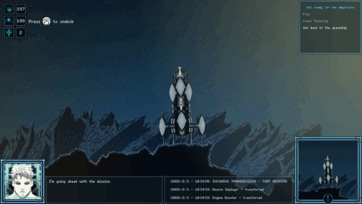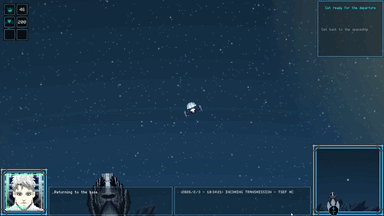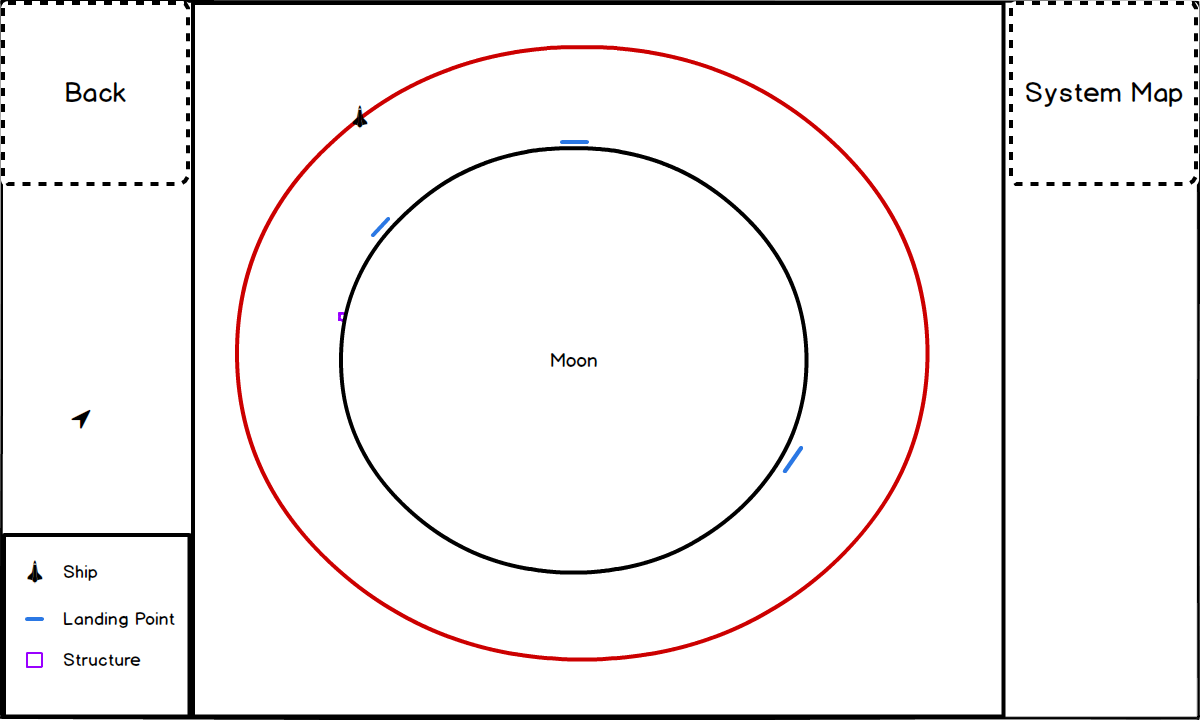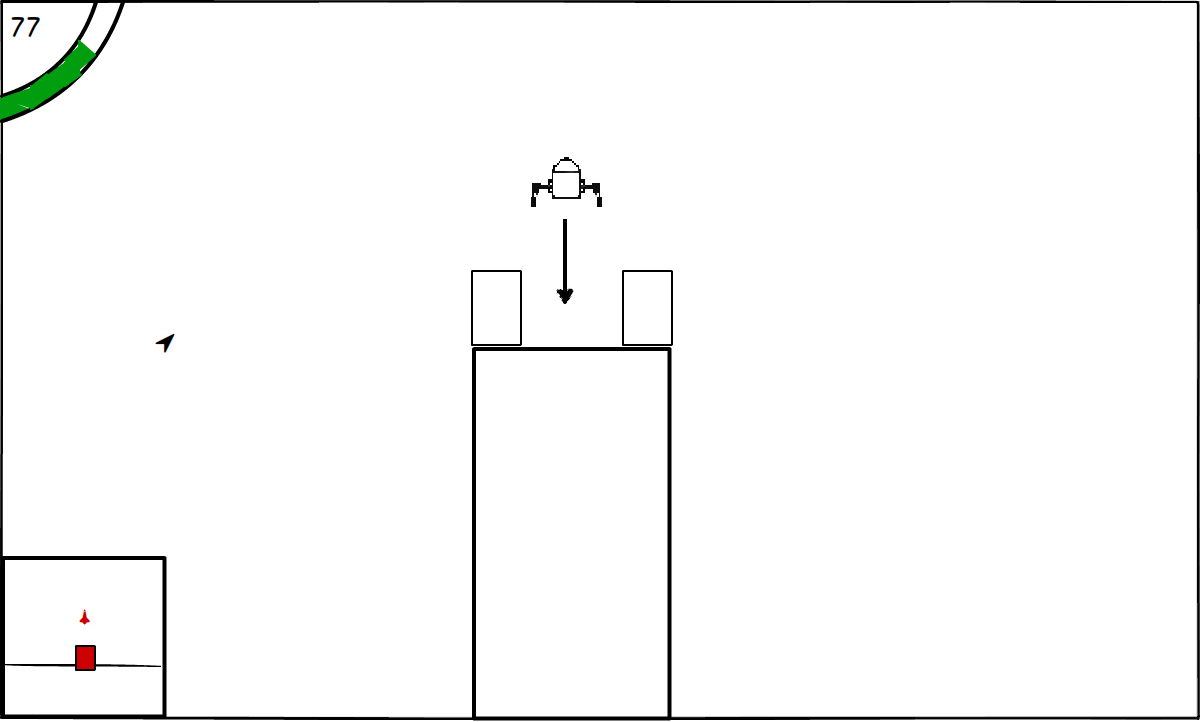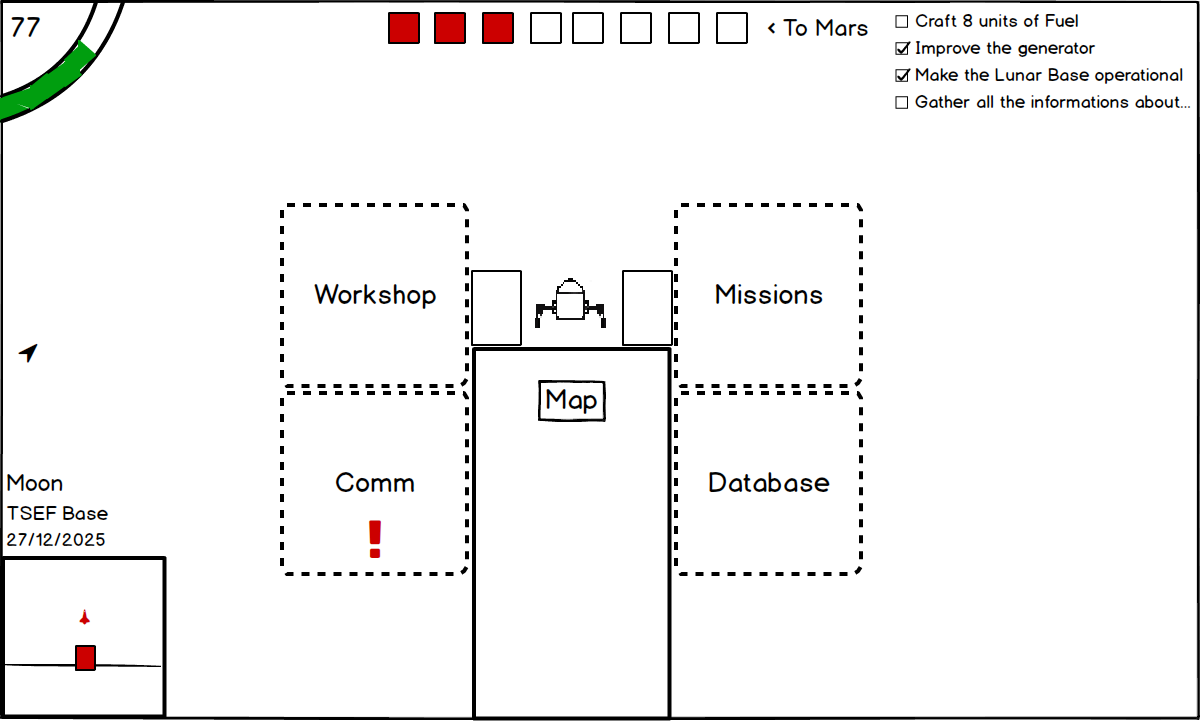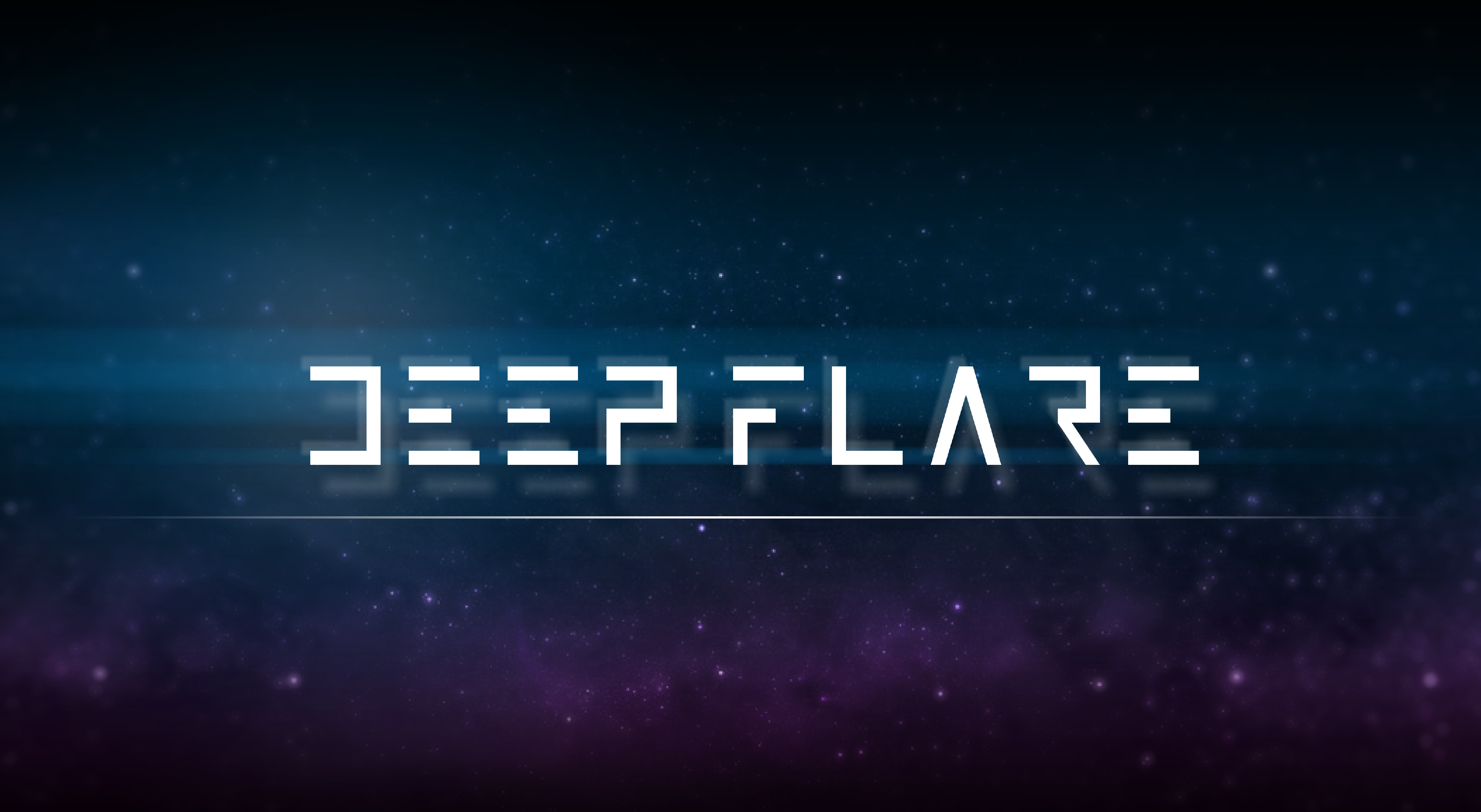
Hi everyone!
In the last entries of the devlog, we talked about various topics concerning the design of our game and the tech behind it. But we forgot to mention what is maybe the biggest change in direction from Deep Flare: Explorer to Deep Flare. Actually, it was kinda easy to forget about that, since it's about a feature which was planned for the complete game, but not present in the demo we realized. Nobody ever played this feature, and therefore it came naturally not to discuss it in our devlog.
The original concept of Deep Flare: Explorer had a strong open world component in its design. The gameplay was divided in two main branches: the exploration of a celestial body with the exploration module, and the actual space exploration while piloting the whole EX-07A ship. But this division was mainly for abstract design purposes, since in practice the game flow was intended to be seamless from one mode to the other. The player would control the ship directly, moving through open space and setting routes between planets, moons and even little asteroids. You could discover new bodies using the ship scanner and lock onto them in order to drill resources or just to add them to your personal database.
Whenever the player intended to land on a planet or a moon, he would have had to perform descent and landing manoeuvers by properly adjusting and firing the ship's engine and directional thrusters. Then, he could undock the module and start to explore the planet with it. The ship would then become a hub to return to, in order to refill the fuel tanks, repair the hull, file your discoveries and\or just take a break from the perils of exploration. The module would by all means be the focal point of the gameplay during this phase. Whenever the player wanted to end his exploration, he could dock back onto the ship and fire its engines again, departing from the body (or maybe only choosing another landing spot). There would have been no interruptions from one phase to the other: by docking back, you would have got the direct control of the ship, with no loading or managing screens in between.
Another early sketch concerning possible action when the ship is landed
Gifs from Deep Flare: Explorer Europa demo, showing module dockin\undocking and ship takeoff
But when we decided to split up the game into episodes, we realized we couldn't maintain the original design regarding those matters. There would have been no practical ways of dividing the game's content without placing invisible walls of some sort, to prevent the player from actually getting where he shouldn't. Even if we had found some convincing explanation, that would have been a betrayal of the "soul" of our game. We don't like to put invisible walls in an exploration game: the main appeal of this kind of experience is seeing where your choices lead to, and putting a barrier to this just isn't fair. So, we decided to focus the whole gameplay in the planet exploration phase.
This way, the actual game experience shifted toward a metroidvania style, with bigger, more detailed levels with lots of choices of action. The ship still retains its purpose as a hub: there you can craft components, analyze your findings, communicate with the base, and so on. It won't even be unmovable - you will be able to choose between various landing points from a designated Orbital Mode screen. When docked onto the Lunar base, the ship can ben modified and upgraded to get even more capabilities.
The actual interplanetary travel will alas be cut from the gameplay, and replaced with the simple act of setting a route, with consistent fuel usage and the chance of some (more or less random) unforeseen events which will require your attention. But that would be matter for another entry! :D


